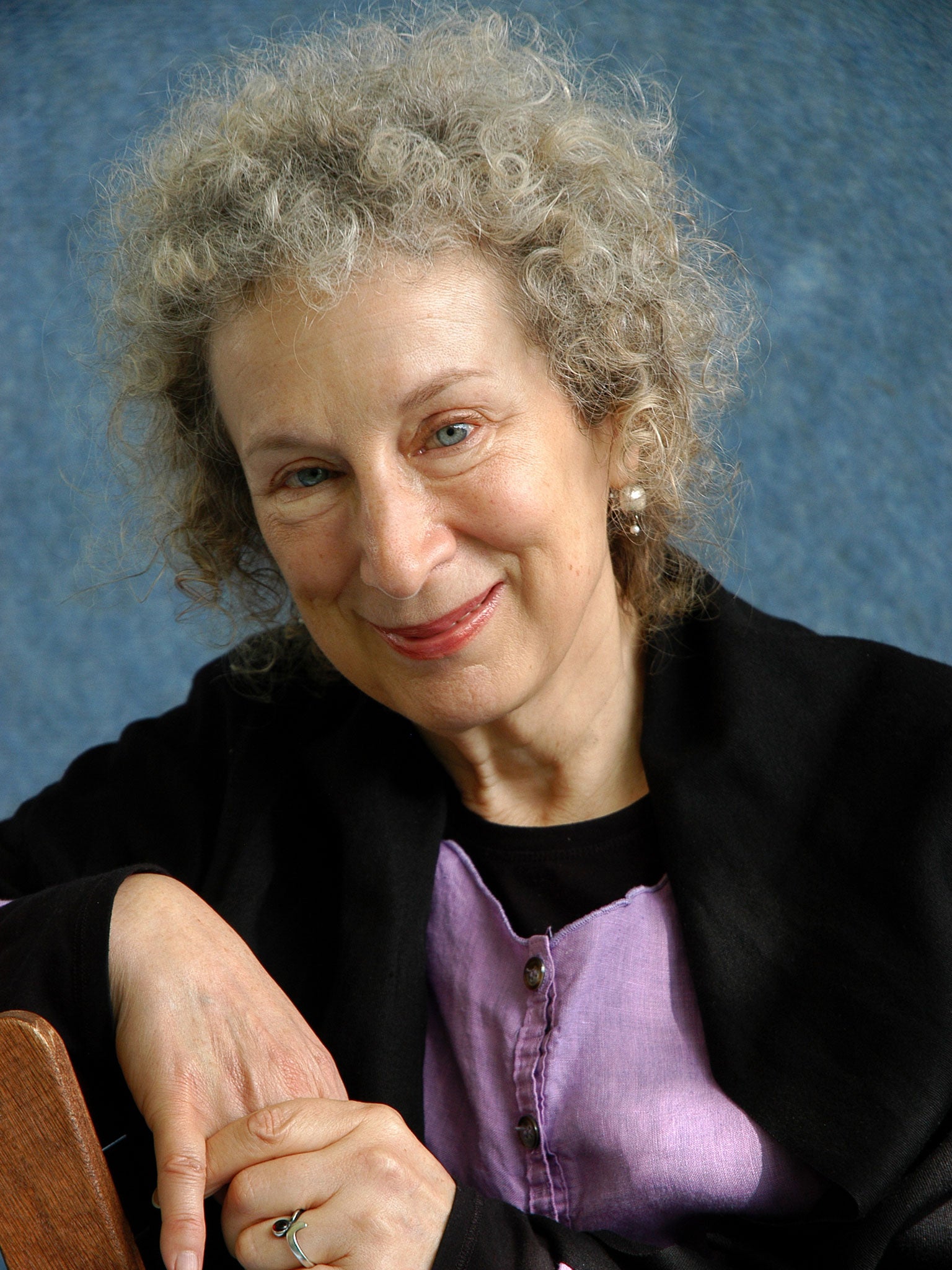Review: MaddAddam, By Margaret Atwood
With this tense tale of pandemic, giant pigs, and survival, is the final part of Margaret Atwood's trilogy obliquely surveying her own legacy?

MaddAddam is the final part of a trilogy that began in 2003 with Oryx and Crake and continued six years later with The Year of the Flood. MaddAddam both completes the series and remixes its opening episodes, which is apt, as motifs of storytelling, splicing, origins and endings run throughout Margaret Atwood's new work.
Get money off this title at the Independent book store
The plot is rudimentary, but in its final stages tense and exciting. At the centre is a band of rag-tag survivors who have out-lasted a global pandemic sent to cleanse the planet of mankind once and for all. Atwood's misfits forage, cook, bicker, reminisce about decent coffee, have sex, hold secret crushes, and try desperately not to die. There are many ways this can be accomplished. There are monster pigs (part Homer, part Orwell) who rage whenever one of their number ends up in a bacon sandwich. Even worse are the "Painballers": rogue psychopaths who found superstardom through a sport that makes Rollerball look like crown green bowling.
After an entente cordiale with the hogs, the tribe declares war on the Painballers. The final conflict takes place, with ironic symmetry, at the Egg, the laboratory in which the Crakes were conceived. Atwood's characters come full circle, but whereas Book One was concerned with birth and rebirth, MaddAddam has a death-soaked sense of ending.
Atwood opens with a handy re-cap that parodies long-running TV series ("The story so far") and the chapter summaries of 18th-century fiction: "The story of the Egg, and of Oryx and Crake, and how they made People and Animals." This precis does more than make MaddAddam accessible to readers who are unaware of Oryx and Crake. It introduces Atwood's diverse acts of narration. MaddAddam's action and characters are presented and re-presented in a series of self-consciously dramatised storytelling sessions – with a teller and an audience – that marry the directness of oral traditions to Atwood's characteristically robust, but written prose.
The longest sections are told by our hero, Zeb, to our heroine, Toby. These accounts of his life and adventures become a kind of love story. Not that Zeb's subject is romance: he's keener on sex, his cult-leading father, his brother, Adam, and his life as a computer hacker. Instead, these intimate acts of confession and revelation help bring Zed and Toby together after years spent flirting too subtly for their own good.
At the end of each day, Toby recycles these tales, and others, for the Crakes. Her bedtime stories are part ritual (she must wear a battered Red Sox baseball cap, a broken wristwatch, and eat a fish) and part myth creation: a way to make a chaotic, violent and capricious world seem comprehensible – and even beautiful – for the gentle, child-like Crakes.
Told in simple prose, these sections are moving, but also very funny. Atwood is not always praised as a comic writer, but MaddAddam reveals a fondness for bad puns (Occam's razor becomes "Ock-ham" during a swinish encounter), off-beat one-liners ("I once had a conversation with my bra") and some inventive running gags. When Snowman-the-Jimmy yells "Fuck" in front of the baffled Crakes, an embarrassed Toby turns the curse-word into an abstract being, who is then absorbed into the Crake religion as a demi-god: "Oryx will be helping me," says a Crake called Blackbeard. "And Fuck. I have already called Fuck. He is flying to here, right now, you will see."
One senses Atwood pondering the joys, demands, and occasional burdens of her craft. While Toby is often inspired when explaining human folly, good and evil to the Crakes, she frets about the truth of her yarn spinning. Do her consoling myths explain life and death to the Crakes or mislead them about its grimmer reality? When Blackbeard finds his creators' skeletons, he howls: "Oryx and Crake must be beautiful! Like the stories! They cannot be a smelly bone!"
There are even moments when Toby tires of catering to the demands of her rabid audience. If Atwood is similarly weary, it doesn't show in her prose, which despite the occasional longueur yeasts itself up with the immediacy of improvised narration. This vitality seems acutely alert to its opposites – to finality and death, whether of her trilogy, her characters, the planet and one suspects her own life. "Is this what writing amounts to? The voice your own ghost would have, if it had a voice?" Toby asks at one point. Is Atwood surveying her legacy, literary and otherwise, out of the corner of her eye? Dedicated to her family, MaddAddam is an extraordinary achievement. The sort of loose, baggy novel at which Atwood has thrown everything except for the kitchen sink (there are no kitchens, or sinks, in Toby's world). It ends with a bravura meditation on the power, consolations and endurance of literature itself: "And I have done this so we will all know of her," Blackbeard writes of Toby, "and of how we came to be." Atwood's body of work will last precisely because she has told us about ourselves. It is not always a pretty picture, but it is true for all that.
Join our commenting forum
Join thought-provoking conversations, follow other Independent readers and see their replies
Comments
Bookmark popover
Removed from bookmarks